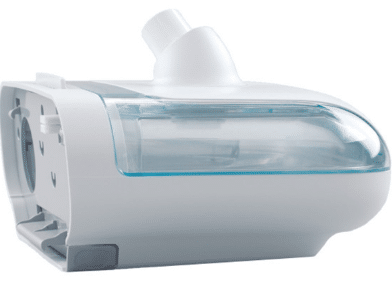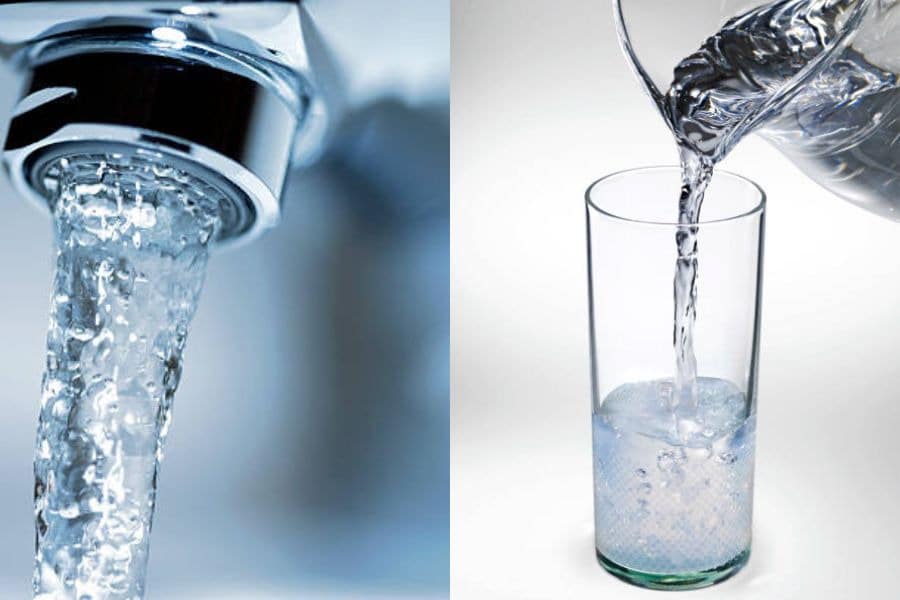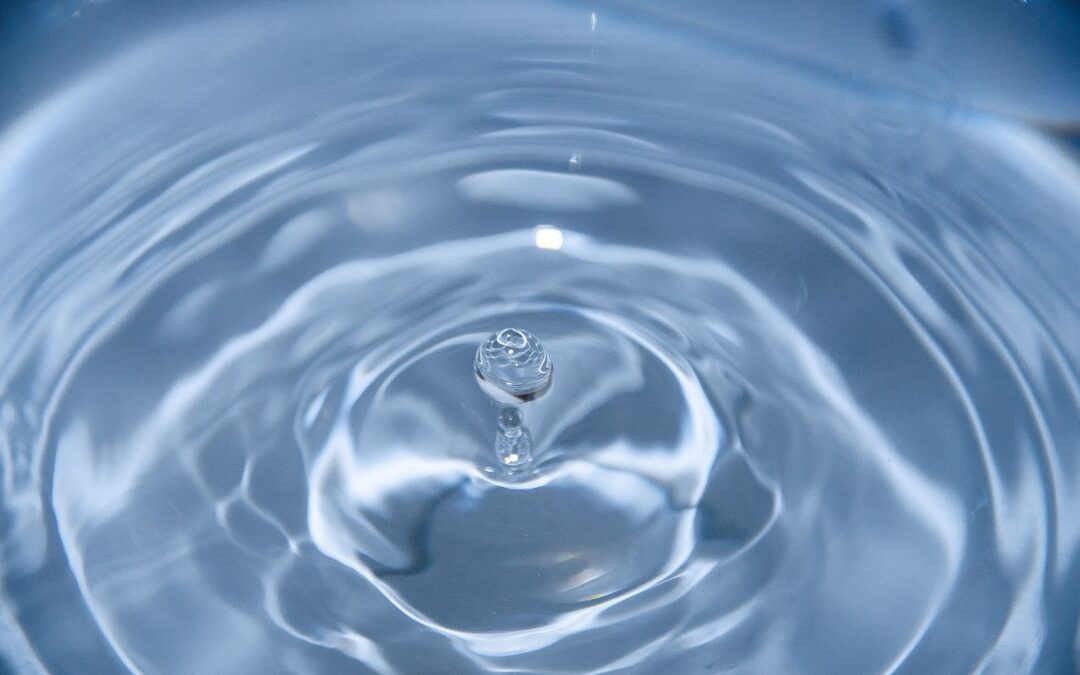A vital part of the machine, the CPAP humidifier helps to wet and warm the air, facilitating breathing and lowering the possibility of adverse effects, including dry mouth and throat discomfort. Nevertheless, the function of the humidifier and the user’s health may be significantly impacted by the kind of water used.
The pros and downsides of using purified water over tap water for CPAP humidifiers will be covered in this article. We will examine the advantages of using filtered water, such as the decreased chance of bacterial growth and mineral deposits, as well as the possible disadvantages of using tap water, such as the presence of chemical pollutants and mineral accumulation.
We will also provide advice and suggestions from respected sleep experts and other medical professionals. Lastly, we at CPAPwater will provide our conclusions and advice on choosing the ideal humidifier water chamber supply for CPAP users.
What Is a CPAP Machine And Humidifier?

To keep the airway open and stop it from closing, a CPAP machine blows pressured air via a mask placed over the nose or mouth.
The device is made out of a motor that pulls air from the environment, pressurizes it, and then delivers it via a tube attached to the CPAP mask. A healthcare practitioner adjusts the machine’s air pressure level depending on the patient’s requirements.
A humidifier may be used to add moisture to the air that is provided to the user of a CPAP machine. The humidifier typically consists of a little water chamber adjacent to the CPAP machine and linked to it via a heated line. The user’s airway receives humidified air thanks to the heated tube, which also heats the water.
Advantages of the Humidifier in the CPAP Machine
- Aid from mouth dryness: A typical negative effect of using a CPAP equipment is a dry mouth. A humidifier used in conjunction with the machine may assist in solving this issue by including moisture in the air provided.
- Enhanced comfort during treatment: Users of CPAP treatment may find it more pleasant and bearable with the addition of humidified air, which may result in higher therapy compliance.
- Nasal congestion is decreased: It is simpler to breathe through the nose and less necessary to use a full-face mask when there is more moisture in the air, which may assist in lessening nasal congestion.
- Lowered chance of infection: The danger of bacterial or chemical contamination from tap water may be decreased by using a humidifier with distilled or purified water.
- Extended equipment life: A humidifier may increase the equipment’s lifespan to avoid mineral accumulation in the CPAP tube and machine.
Types Of Water Available For CPAP Humidifiers And There Pros and Cons
The water that may be used with humidifiers comes in various varieties. The most typical kind of water are:
Tap Water
CPAP users often use tap water since it is the most accessible. Unfortunately, tap water could include pollutants like minerals, chlorine, and chemical contaminants that, over time, accumulate in the humidifier and harm the device or create health problems.
- Advantages: The most practical and accessible choice.
- Disadvantage: Includes impurities that may build up in the humidifier and damage the device or cause health issues, such as minerals, chlorine, and chemical pollutants.
Distilled Water
Boiling water to produce steam, which is subsequently condensed back into liquid form, is the first step in the distillation process, which purifies drinking water. It becomes the cleanest water accessible after this procedure eliminates pollutants and minerals. The danger of mineral accumulation and other contaminants is decreased by using distilled water with heated humidifiers.
- Advantage: The distillation process removes minerals and contaminants, making it the purest water available.
- Disadvantage: More costly and challenging to get in certain places than tap water.
Purified Water
Chemicals and minerals are among the contaminants that are removed during the purification process. Reverse osmosis or carbon filtering techniques may do this. Although filtered water may be safe for use with a humidifier, it may not be as pure as distilled water and may still contain some pollutants.
- Advantage: Chemicals and minerals are removed using purification processes like reverse osmosis or carbon filtration.
- Disadvantage: It may still include some contaminants and not be as clean as distilled water.
Spring’s Water
Bottled spring water is often offered and originates from natural springs. While it could be devoid of contaminants, it might also include minerals that could cause a buildup in the humidifier.
- Advantage: It could be devoid of impurities.
- Disadvantage: This may include minerals that build up in the humidifier.
Mineral Water
Mineral water is water with minerals, such as calcium and magnesium, that are good for your body. Nevertheless, owing to the possibility of mineral accumulation, it may not be appropriate for use with a humidifier.
- Advantage: It contains minerals that are good for the body.
- Disadvantage: Due to the possibility of mineral buildup, it may not be suitable for use with a CPAP humidifier.
Comparison Of The Cost Of Using Tap Water Versus Purified Water In A CPAP Humidifier

Using tap water in your CPAP humidifier is less expensive than using purified water. Compared to filtered water, tap water is more widely accessible and less costly. On the other hand, filtered water costs more than tap water. Examples include reverse osmosis water and distilled water.
It is possible to reduce the price of utilizing filtered water with a CPAP humidifier in several ways:
- Use sometimes tap water: Although frequent use of tap water may cause mineral accumulation, infrequent usage may be beneficial. Budget-conscious people should use this technique.
- Buy distilled water in large quantities: Large purchases of distilled water may assist in bringing down the price per gallon.
- Employ filtered water: It may be less expensive than using distilled water to use filtered water, such as reverse osmosis water or carbon-filtered water, and still remove specific contaminants.
- Build your own distilled water system: Boiling water and collecting the steam, which is subsequently condensed into liquid form, may create purified water. In the long term, using this strategy could cost less money.
- Considering refillable water chambers: Certain heated humidifiers are built to employ a reusable water chamber instead of disposable water chambers.
- Search for deals and sales: It is worthwhile to discover the lowest prices since many retailers offer promotions and discounts on distilled or bottled water brands.
Ensuring The Water Used In a CPAP Humidifier Is Clean And Safe
Making ensuring the water used in a CPAP humidifier is clean and secure requires the following steps:
- With the CPAP humidifier, only use clean, distilled, or filtered water to lower the possibility of bacterial development and mineral accumulation.
- Never use the humidifier’s previous day’s water; replace it every day.
- To stop the development of mold and germs, remove any residual water from the water chamber and let it air dry throughout the day.
- While not in use, keep the CPAP humidifier clean and covered by using a separate water bottle or container.
- Utilize a humidifier with a washable, disinfectable detachable water chamber.
- Use soap, warm water, white vinegar, and water or a CPAP-specific disinfectant to routinely clean and sanitize the chamber.
- Follow the detailed cleaning and maintenance recommendations in the humidifier’s user handbook.
- Replace the water chamber every six months or as directed by the CPAP manufacturer.
A CPAP humidifier’s efficiency and safety must be maintained by regularly cleaning and disinfecting the water chamber. Germs and mildew in a dirty water chamber can cause allergic reactions, respiratory infections, and other health problems.
Also, it may result in mineral accumulation, which might harm the humidifier and lessen its ability to humidify the air. Frequent water chamber cleaning and disinfection can prevent these issues and ensure clean, humidified air for effective CPAP treatment.
Choosing Between Tap Water And Purified Water

There are several things to take into account when deciding between tap water and filtered water for a CPAP humidifier:
- Aquatic Quality: Your local tap water quality might differ depending on where you live. Minerals, chemicals, and bacteria that may be harmful may be present in pure tap water. Filtration has been used to eliminate pollutants and toxins from purified water.
- Cost: Purified water may be more costly than tap water if you buy bottled water. If you decide to utilize it, you must account for the expense of obtaining or creating distilled water.
- Convenience: Because tap water is so widely accessible, it might be more practical. On the other hand, if you decide to utilize purified water, you could buy it or make your own distilled water.
- Individual Preference: Some may prefer filtered water’s flavor over tap water. Some people may appreciate the ease of utilizing tap water.
- Effect on the Environment: The production and shipping of plastic bottles may harm the environment. Using tap water or making your own distilled water may be more ecologically beneficial.
With your CPAP humidifier, deciding between tap water and filtered water is crucial. Also necessary to consider are your tastes, finances, and location. The decision ultimately rests with the user and what suits them the most.
Expert Opinions and Recommendations
Purified or distilled water is generally considered the best choice for humidifiers by sleep experts, respiratory therapists, and other medical professionals. This is because distilled or purified water lacks the minerals and chemical impurities in tap water, which may build up in the humidifier’s chamber and CPAP tubing and serve as a haven for bacteria and other diseases.
While bottled water may not be regulated in medical equipment like CPAP machines and may include minerals and chemicals that harm the humidifier and heated tubing by causing mineral buildup, some experts also advise against using it.
If distilled water is unavailable, tap water can be boiled for 10 minutes to kill germs and bacteria. Use tap water sparingly to avoid mineral buildup in the humidifier and heated tubing.
Experts recommend purified or distilled water for CPAP humidifiers to prevent bacterial growth, mineral buildup, and device damage. Geography, cost, and personal preference may influence this choice.
A Balancing Act Between Safety And Convenience
When choosing between purified or tap water for your CPAP humidifier, it’s important to consider the potential for mineral deposits and contaminants. Experts typically recommend distilled or filtered water to minimize these risks. However, if necessary, tap water can be used with frequent cleaning of the humidifier to prevent mineral buildup and bacterial growth. Always prioritize safety and follow manufacturer guidelines and healthcare advice for your CPAP treatment. For all your CPAP needs, including accessories for water maintenance, explore our comprehensive CPAP collection.



